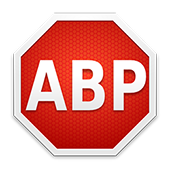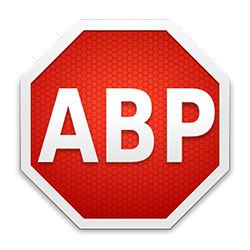 Eyeo, the company that owns Adblock Plus, has won a significant case against two German newspapers, meaning it can continue to block online adverts.
Eyeo, the company that owns Adblock Plus, has won a significant case against two German newspapers, meaning it can continue to block online adverts.
The two publishers – Zeit Online and Handelsblatt – had asked a Hamburg court for injunctive relief, saying the popular web extension – downloaded over 50 million times – was anti-competitive and hampered their ability to make money via three websites: Zeit.de, Handelsblatt.com, and Wiwo.de.
However, at the conclusion of the trial, the regional court ruled in favour of AdBlock Plus, as confirmed by project manager Ben Williams on the company’s blog:
Today, after a four-month trial, reasonable heads prevailed as the regional court in Hamburg ruled in our favor by declaring that ad blocking is, in fact, perfectly legal.
Both Zeit Online and Handelsblatt vowed to continue to battle against AdBlock Plus, issuing a joint statement saying they remain convinced that the software is illegal and that it infringes press freedoms.
According to the BBC, the pair are awaiting a written copy of the judgement before they assess whether or not an appeal would be likely to succeed.
The publishers had sought financial relief as well as an end to ad blocking on their own web properties, but also wished to challenge Eyeo’s business model as a whole.
Anticipating the potential for further lawsuits in other jurisdictions, Williams claimed the German ruling could prove significant:
The Hamburg court decision is an important one because it sets a precedent that may help us avoid additional lawsuits and expenses defending what we feel is an obvious consumer right: giving people the ability to control their own screens by letting them block annoying ads and protect their privacy.
Looking further ahead, Williams said the aim of AdBlock Plus was to work with both publishers and advertisers to:
Develop new forms of non-intrusive ads that are actually useful and welcomed by users; let’s discover ways to make better ads.
The company offers its ad-blocking extension to users free of charge, making its money from what it calls a “white list” of approved advertisers whose adverts are in fact displayed.
Advertisers wishing to gain entry to the white list must follow a strict set of rules which essentially demand that adverts must be non-intrusive and not annoying. The company’s acceptable ads guidelines indicate that inclusion cannot be bought:
No applicant will be favored or treated differently, and no one can buy their way onto the whitelist. Everyone has to comply with the criteria and everyone has to go through the same process before the ads qualify as acceptable.
However, the company does offer “support services” to larger companies in return for an unspecified fee, reportedly equivalent to 30% of the value of the enabled ads.
Such a business model has led to a degree of criticism for ad blocking services in general with one site asking ad blocking is theft and another going as far as asking whether AdBlock Plus is running some sort of “racket“.
Speaking to the BBC, Williams dismissed the latter claim, saying that:
If we are racketeers we are terrible racketeers because 90% of the people on the white list don't pay anything and the criteria is the same for everyone.

Steve
A wise decision by the German court. Keep on truckin’, AdBlock Plus!
victor
good I’m glad they lost I HATE ADVERTS I would install ADBLOCK TO the worst thing with searching the net is getting BOMBARDED WITH ADVERTS..
Peter
Would you rather pay a subscription for the websites you visit? they have to make money some how.
Steve
It is not a question of that. it is the type of adverts. From the annoying (auto play vids, full screen popups) to the fake “download” buttons and adverts shoving spyware/malware down our throats.
Advertising needs to be less intrusive, if it was we wouldn’t have the need of adblock plus to exist.
Canuck
Yes but as soon as you enable it – you don’t give any website owner a chance to show any ads – intrusive or otherwise. It’s people like you that are killing small publishers. Yet you are part of the exact same people who will never pay for any online services.
Paul Ducklin
That’s a *bit* presumptuous. Never say “never” :-)
Dave B.
That may be, but the safety and security of my computers and data are more important to me than a website owner making a few cents off my visit via an ad. Until the broken ad networks get fixed that is the way it will be.
Ole1kanobe
Because me being forced to lower the protection level of my network and expose myself to any one of the current malware threats being delivered via ads so a website can make a couple of cents is surely logical.
If ad blockers are to become illegal then perhaps the web site owners themselves should be held liable on a global level for not taking due diligence in ensuring the third party ad networks, that they are letting run ads on their website(s), are not letting just anyone into their network just so they can make a profit.
Padraig
Agreed or avoid sites where ads are annoying. Does anyone really expect that newspapers should provide totally free content ?
Deonast
Totally agree if you want to show the adds are not working don’t go to the site and they will get the idea. Go to the site and hide ads and they just get the impression everyone wants a free ride. If you don’t like their ads actually email them, put a note on the contact form etc letter to the editor but don’t use something like adblock plus it doesn’t fix the underline problem.
4caster
Plenty of newspapers and magazines can be picked up free of charge because advertising revenue more than covers the production costs. The adverts are there, but they don’t pop up over the news and articles. Other magazines like “Which? don’t have adverts but cost a fortune. You pays your money and takes your choice.
Guy
I continue to be surprised at the revenues that Google and Facebook make selling ads. I almost never click on ads as they are seldom a propos to me.
Larry
The problem is not ads themselves but the intrusive and annoying ads that take over your screen play video and audio without asking. I visit some local media sites and I am ok with must of their ads and have even clicked on a few.
Look at Yahoo.com’s banner ad, it can take up to 1/4 of the screen and when it is for Apple you cannot even collapse it.
Dave B.
At this point and time, advertisements are just as much (if not more) a security issue than an annoyance. Hijacked ad networks are pretty much a weekly (maybe daily) occurrence. Until ad networks can actually get control of their content and stop being a vector for malware I will block any and all.
Deramin
Agreed. I’m convinced that my compulsively installing Adblock Plus on all browsers on every used account on every computer at work is why we haven’t had drive by malware in several years, when other sites have.
I don’t mind text-only ads, so I’m glad Adblock Plus uses their leverage to encourage those ads. But no scripts, no flash, no java, no gifs, will ever be allowed into my browser by ads, legally or not.
Glen
Hurray for ABP. I have used it and love it for what it blocks out.(Annoying ads)
johnc
Achtung! Send the Interpol to my house to seize my computers!!! I just added the domains, Zeit.de, Handelsblatt.com, and Wiwo.de, to my Hosts files, re-routing them to local host. Hands up! Step away from Your computer!
stoat
“It’s people like you that are killing small publishers.”
Not at all.
It’s advertisers who refuse to accept user preferences against intrusiveness, privacy violations and malware who are killing small publishers. Why not take out your frustration on them?